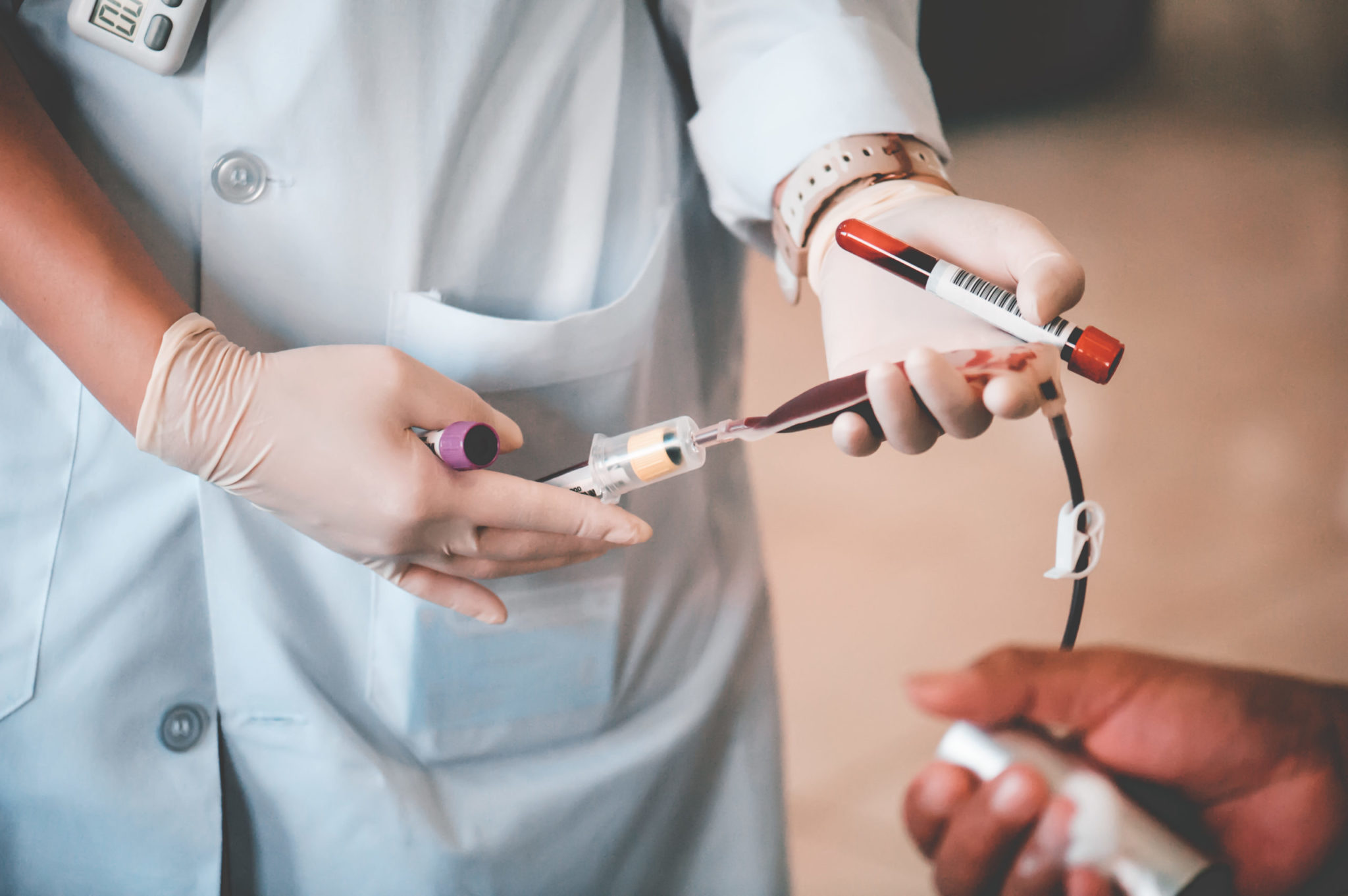
Blood donation is an act of donating part of one’s own blood voluntarily to a blood bank, hospital, non-governmental organisation, or other medical facility. It is a gesture of humanity that has a multitude of benefits not just for recipients, but for donors too.
Blood donation is a life-saving act and is essential in saving the lives of those who experience unexpected and life-threatening bleeding episodes as a result of surgery, accident or illness. Every day, thousands of people all around the world rely on donated blood to survive. As such, blood donation is one of the most powerful ways of giving back to the community, since it is donating the most precious gift of all—the gift of life.
When a person donates blood, they go through a process called screening. This includes checking your blood pressure, temperature, and pulse, as well as checking for any signs of an infectious disease. Once the donor has been screened, the blood is tested for various components such as the number of red blood cells and white blood cells. After the blood has been tested, it is ready to be used.
Types of Blood Donations
The World Health Organisation (WHO) recognises that having access to safe and sufficient blood is essential to providing effective health services in all countries. For this reason, the WHO has classified several types of blood donations according to the collection and usage of blood components.
Whole blood donation is the most common type of blood donation and involves the donation of a single unit of blood that is separated into several different components. The components can then be stored and used separately. Each unit of donated whole blood can yield up to three or four different components, such as red blood cells, platelets, plasma, and fresh frozen plasma, which may be used for different medical purposes. For example, red blood cells may be used for transfusions for patients with anemia, platelets for those with leukemia or other blood cancers, and plasma for trauma victims.
Additionally, WHO recognises two specialised types of blood donations: directed donation and autologous donation.
Directed donation, also known as designated donation, is when a donor specifically requests to donate blood to an individual patient in need. It is often used in emergencies when a patient’s family and friends or other community members are unable to donate.
Autologous donation is when a donor donates blood for their own medical procedure. This type of donation is often used prior to elective surgeries and other medical procedures to ensure that the patient receives blood of a known type and quality.
Finally, WHO recognises that the need for regular blood donation helps to maintain a reliable and safe blood supply. This type of donation usually involves voluntary non-remunerated donation of blood where donors are not compensated for giving blood, but are instead motivated by altruism. These campaigns can be organised at hospitals, blood donation centres, or through community-based programmes.
Who Can Donate Blood?
An haematologist who works at the Lagoon Hospitals, Dr Olatomi A. Bamigboye, said the most important criteria for being eligible to donate blood is being in good health. A member of the West African College of Physicians, Bamigboye said the donor must be between the ages of 18 and 65 and weigh at least 50kg. Additionally, the donor must not have a history of any medical condition or contagious disease.
To further ensure the safety of the blood donation process, the donor must provide blood tests to prove that they are not having any infectious or transmissible diseases, such as HIV or Syphilis. Those who have recently traveled to certain countries or regions may also need to be tested for additional diseases before they are able to donate.
Furthermore, Dr Bamigboye explains that blood donation must always be done at a professional medical centre under the direct guidance of a trained nurse or doctor. Donors should also be well informed of any risks associated with the procedure, and follow all the instructions provided by the medical staff.
She also added that donors must not be taking certain medications, such as steroids, anticoagulants, or any drugs that can decrease the quality or quantity of their blood. These medications are known to increase the risk of adverse reactions and make the donated blood unsuitable for use.
Finally, donors must have donated blood no more than three times in a year, and must have not donated more than a gallon of blood in their lifetime. Donating more than this can lead to a range of health problems and make the donated blood unsuitable for use.
These criteria ensure that the guidelines and rules regarding blood donation established by the Nigerian National Blood Transfusion Services Authority, which encompasses the safety and quality of the donated blood in the country are followed. They are essential to the success of any blood donation programme, and Nigerian haematologists take them very seriously.
Who Cannot Donate Blood?
Dr Bamigboye also stated that there are certain individuals who are ineligible to donate blood.
Those who are ineligible to donate blood are typically those with any type of infectious disease, whether it be HIV/AIDS, hepatitis, or syphilis. Pregnant women, children under the age of 18, and those who have a recent medical history involving medications can also be deemed ineligible to donate.
Other general health issues, such as high blood pressure, diabetes, and obesity can also disqualify one from donating blood.
In addition to this, those who engage in certain activities, such as intravenous drug use, smoking, and alcohol use, can also be ineligible to give blood. Furthermore, any individuals who have a recent history of tattooing or body piercing may also be ineligible to donate, as these activities increase risk of infection.
According to the haematologist, individuals should ensure that they are in good health and know their HIV status before they can donate blood. Aside from being ineligible to donate, those who suffer from certain chronic illnesses may also be required to refrain from certain activities or endure certain treatments before they can give blood. Being aware of the health requirements prior to donating is essential in maintaining the safety of both the donors and the receivers.
Conclusion
Blood donation is an important service and those who are willing and eligible to donate should be celebrated and encouraged to do so.
Following specific instructions given by the blood specialist, those who are looking to donate blood should exercise caution in ensuring that they meet all of the eligibility requirements before doing so. This will help to ensure that blood donors and recipients alike have a safe and successful blood donation experience.








